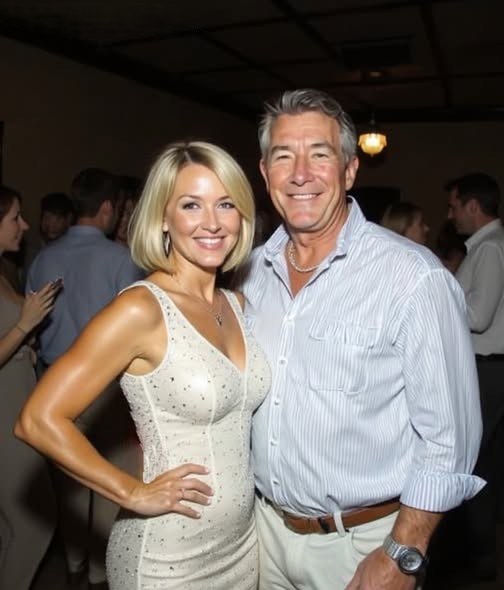She Was Hollywood’s Dream Girl in the ’80s — Now She’s Redefining Beauty on Her Own Terms
In the glittering world of 1980s Hollywood, Justine Bateman became a familiar face and household name. With her breakout role as Mallory Keaton on the hit sitcom Family Ties, she captured the hearts of audiences across America. Her quick wit, charm, and effortless confidence made her one of television’s brightest young stars. Bateman’s striking look and signature style embodied the glamour of the decade, earning her fame, admiration, and a lasting place in pop culture history.
But decades later, the conversation surrounding Justine Bateman is no longer about fame, fashion, or the next big role. Instead, it centers on something far more profound: her decision to embrace aging naturally and publicly challenge Hollywood’s narrow definition of beauty. At 57, Bateman has become a powerful voice for authenticity, proudly refusing to alter her face or conform to the industry’s relentless pursuit of youth.
Her stance is not an act of rebellion, but rather one of self-respect and awareness. Bateman has spoken candidly about how deeply troubling she finds society’s fear of aging, especially among women in entertainment. The constant message that beauty fades with time, she argues, creates an impossible and damaging standard. For her, every wrinkle, every gray hair, and every visible mark of time is part of a much larger story—the story of a life fully lived.
“I’m not going to change my face to make someone else feel more comfortable,” she once said. That simple statement has resonated deeply with people around the world. To Bateman, her face is not something to be fixed, but something to be honored. It carries memories of laughter, moments of pain, and the wisdom gained through experience. Rather than erasing those reminders, she chooses to celebrate them.
Her choice has sparked both criticism and admiration. In the world of social media, where appearance is often scrutinized and filtered, some have mocked her for not “fixing” her face. Others, however, have praised her courage and honesty, calling her an inspiration for women of all ages. Bateman remains unfazed by the negativity. Her belief is clear: self-worth should never depend on looking young.
She often speaks about the powerful pressure women face to conform to unrealistic standards of beauty. From magazine covers to movie screens, the message is consistent—youth equals value. Yet Bateman has flipped that narrative, reminding everyone that aging is not something to fear but to embrace. She describes it as a privilege, a visible record of strength and survival. “The lines on my face are important,” she says. “They remind me of everything I’ve survived.”
Beyond her acting career, Bateman has become an author, filmmaker, and outspoken advocate for self-acceptance. Her writing and public appearances emphasize individuality, authenticity, and self-love over external approval. She encourages others to make choices based on personal values rather than social pressure, showing that true beauty comes from confidence and self-awareness.
Once admired for her youthful glow and Hollywood allure, Justine Bateman now shines for something far greater—the courage to be real in a culture that worships eternal youth. Her journey challenges the illusion that beauty fades with age, proving instead that it can deepen, evolve, and become more meaningful. Through her example, Bateman reminds the world that there is strength in authenticity and grace in allowing ourselves to simply be as we are.



